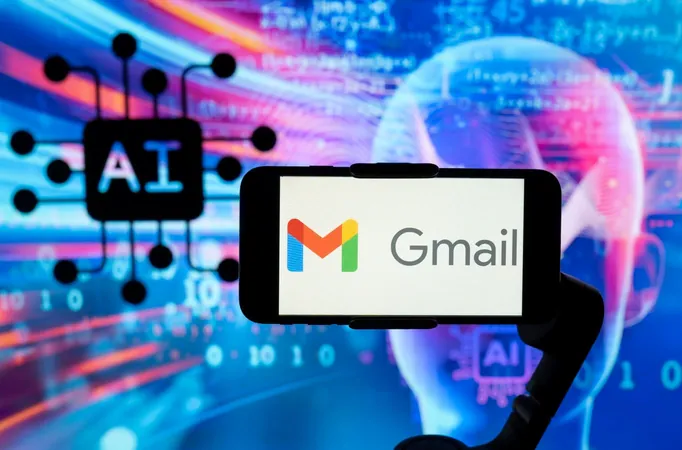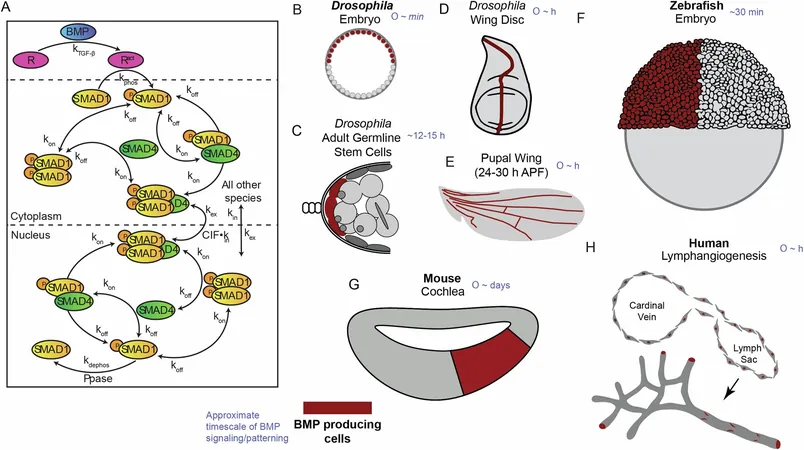
Urgent Gmail Security Alert: AI-Powered Hacks Threaten 2.5 Billion Users!
2024-10-12
Author: John Tan
The Chilling Reality of AI Scams
Take the case of Sam Mitrovic, a Microsoft solutions consultant who recently dodged a near miss with an incredibly sophisticated AI scam call. This incident illustrates just how advanced these attacks have become. Mitrovic first encountered the threat when he received a notification to approve a Gmail account recovery attempt—a classic phishing technique designed to lure users into a trap.
At first, Mitrovic dismissed the notification, but soon after, he received a phone call from someone claiming to be from Google Support. This individual expertly manipulated the conversation to gain Mitrovic’s trust by discussing supposed unauthorized access to his email account.
"I received a call asking if I was traveling or if I'd logged in from Germany," Mitrovic recalled. This information was meant to create a false sense of urgency, heightening the panic about potential security breaches and making users more vulnerable to deception.
After some sleuthing, Mitrovic discovered that the phone number the caller was using appeared to connect to legitimate Google resources—another tactic that could easily trap unsuspecting individuals.
Spotting the Signs of Fraud
Mitrovic's experience highlights critical warning signs that all Gmail users should heed. A key giveaway for him was the AI’s flawless speech pattern. Realizing the voice lacked natural human characteristics and was overly perfect was crucial in his decision to investigate further. When prompted to provide a confirmation email, he received one that deceptively appeared to come from a Google domain, but had a hidden address designed to mislead.
For encroaching scammers, the ultimate goal is often to get users to input their credentials into a fake login portal, thereby stealing personal information and potentially bypassing two-factor authentication measures.
Google’s New Anti-Scam Initiative: A Ray of Hope
To combat these rising threats, Google has joined forces with the Global Anti-Scam Alliance and the DNS Research Federation to initiate the Global Signal Exchange—a groundbreaking intelligence-sharing platform aiming to disrupt cybercriminal activities both effectively and efficiently.
Amanda Storey, Google’s senior director of trust and safety, commented on the collaboration, stating that this alliance would leverage the unique strengths of each partner in their fight against scams. The goal of the initiative is to compile and share real-time signals related to fraudulent activities, making it easier to identify and counteract threats.
In its pilot phase, Google has already shared over 100,000 malicious URLs and processed a million scam signals, showcasing its commitment to tackling this issue on a global scale. With the capabilities of Google Cloud driving the initiative, participants will be able to alert one another to potential scams while harnessing AI to predict patterns in scam activity.
What You Can Do to Stay Safe
In the face of these advanced tactics, users across the globe should adopt a vigilant approach. Always verify that you are dealing with official communication from Google, use strong, unique passwords for your accounts, enable two-factor authentication, and regularly monitor your account activity for any unusual changes.



 Brasil (PT)
Brasil (PT)
 Canada (EN)
Canada (EN)
 Chile (ES)
Chile (ES)
 España (ES)
España (ES)
 France (FR)
France (FR)
 Hong Kong (EN)
Hong Kong (EN)
 Italia (IT)
Italia (IT)
 日本 (JA)
日本 (JA)
 Magyarország (HU)
Magyarország (HU)
 Norge (NO)
Norge (NO)
 Polska (PL)
Polska (PL)
 Schweiz (DE)
Schweiz (DE)
 Singapore (EN)
Singapore (EN)
 Sverige (SV)
Sverige (SV)
 Suomi (FI)
Suomi (FI)
 Türkiye (TR)
Türkiye (TR)